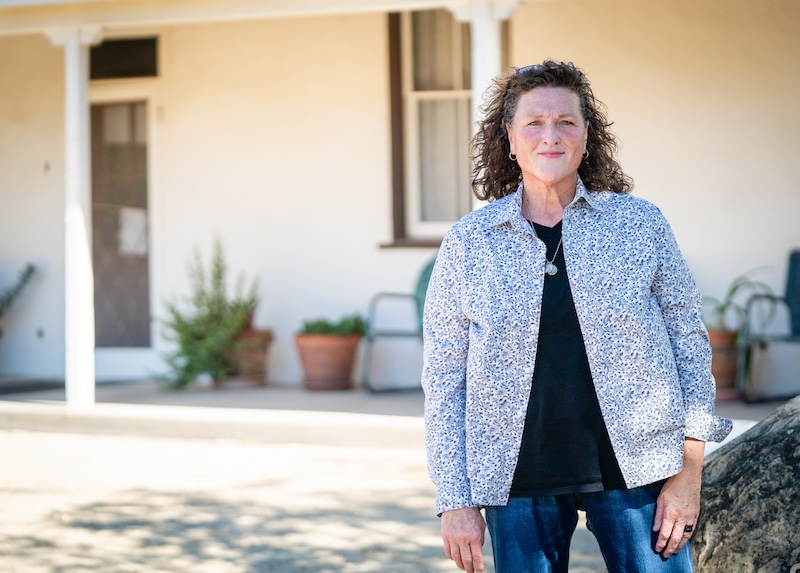Hip Replacement: Regaining His Life Without Pain
May 17, 2022

Precise surgeries. Fast recoveries. Best outcomes.
Mark Gilbert is a do-it-yourself kind of guy. The retired mechanical engineer always has been, and he always plans to be. His deck? He built that. His car’s oil? He changed that. His daughter’s sprinkler system? He installed that.
But the 74-year-old thought his DIY days were over four years ago when he developed osteoarthritis in his left hip.
“Walking to the end of the driveway to pick up the mail was about all I could do,” Gilbert says. He could barely walk up a flight of stairs and needed a motorized cart at stores. Lying down was the only way to alleviate his intense pain.
He knew he needed help. That’s when he found Adventist Health St. Helena’s Coon Joint Replacement Institute.
Restoring mobility and independence
Gilbert soon had his left hip replaced — and eventually, in 2021, his right. He joined the more than 450,000 Americans who have hip replacements each year, according to the Agency for Healthcare Research and Quality. His wife, Beth, had both knees replaced at Coon Joint Replacement Institute, too.
Thanks to minimally invasive techniques, joint replacement can be less painful and less intrusive on life. Better pain management is one of the biggest differences between procedures today and those of decades past. Then, replacements were considered a last resort and required long hospital stays to handle pain, followed by extended time in a rehabilitation facility. Compare that to Gilbert’s most recent surgery at Coon Joint Replacement Institute, performed by orthopedic surgeon John Diana, MD.
A modern model for surgery
Gilbert arrived at the institute around 7 in the morning on the day of his operation, and just four hours later he was out of recovery and back in his room, “walking, talking and scarfing down a turkey sandwich,” he recalls. “It didn’t feel like I had surgery. It was more like I just had my teeth cleaned at the dentist.”
That speedy recovery is thanks to the direct anterior approach for hip replacement. With this minimally invasive technique, a surgeon must only make a 3-to-4-inch incision at the front of the hip — and muscles and tendons stay attached. That means people like Gilbert can be up and walking within an hour or two after surgery. And they’re able to recognize an immediate improvement in their quality of life.
“Our joint replacements have allowed us to live a normal life again,” Gilbert says of his and his wife’s experience. “Before the hip replacements, I spent most of my time in my recliner chair watching TV — and that’s not me.” He’d rather travel the country in his RV or tackle a never-ending list of home renovation projects. And now he can. He doesn’t even give his hips a second thought. “The only reason I think about my hip replacements is when I remember that there is no reason to think about my hip replacements.” •
Coon Joint Replacement Institute by the numbers
1.32 days
Average length of hospital stay after hip replacement surgery
271 feet
Average distance walked in the hospital after surgery
99%
Patients who would recommend Coon Joint Replacement Institute to others


